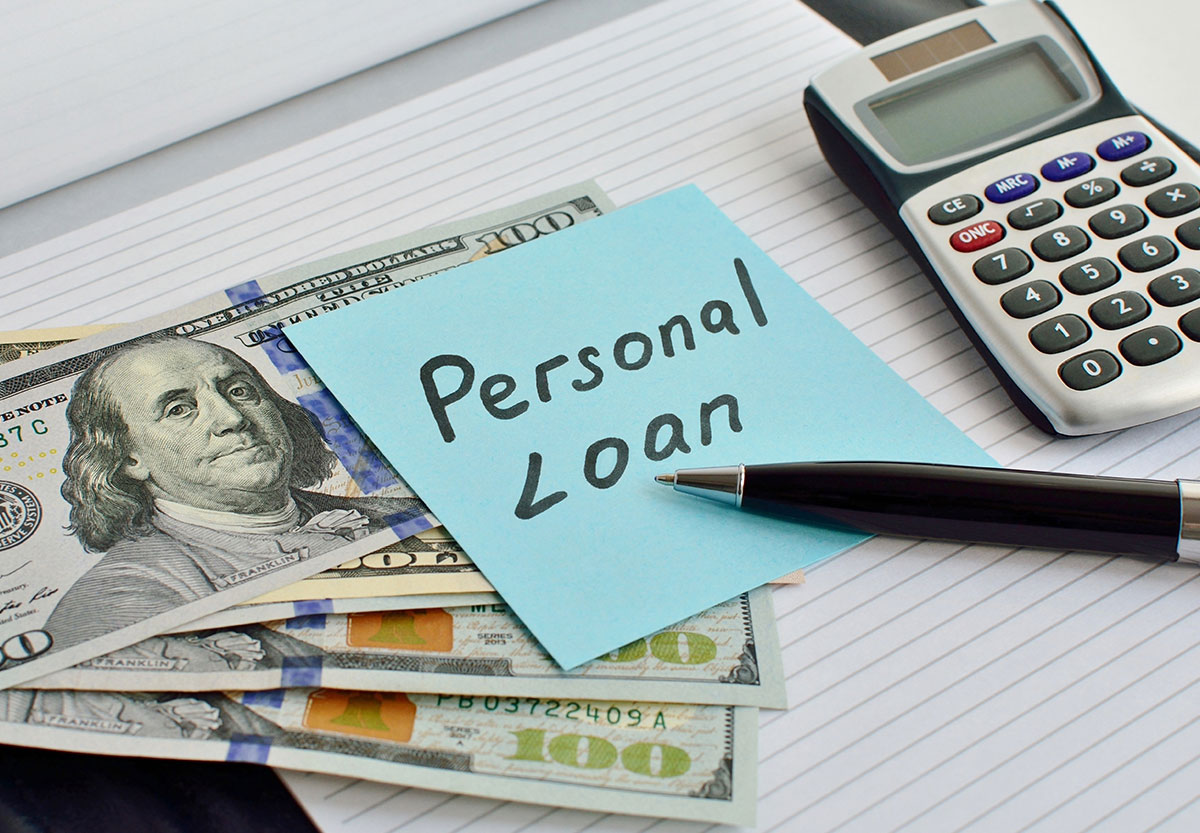
Questions to Ask Before Applying for a Personal Loan
Jump-to:
- What is a Personal Loan?
- What is an Unsecured Loan?
- What is a Secured Loan?
- Your Credit
- Your Finances
- What Can a Personal Loan Be Used For?
- Deciding on the Type of Loan
- Alternatives to Personal Loans
- Understanding Loan Terms
A lot of people wonder if getting a personal loan is a good idea. A personal loan can fill a void in your budget and help you break a large expense into more manageable monthly payments. It can also help you cover unexpected expenses, like home repairs or other improvements, or consolidate high-interest debt. The reality is – life costs money. A personal loan is a big decision to make and can seem scary, so that’s why we are here to help!
Here are a few questions to help make your decision a little easier and determine if a personal loan is a good fit for you, but first - let's define the different types of loans.
What is a Personal Loan?
A personal loan is a fixed lump sum of money borrowed through a financial institution. They typically come with a fixed interest rate and a set repayment period, making them predictable and easy to manage. Personal loans come in two types: unsecured loan and secured loan.
What is an Unsecured Loan / Signature Loan?
An unsecured loan is not backed by any collateral. Instead, financial institutions will review the borrower’s creditworthiness to determine the amount of risk involved with the loan. Unsecured loans are also known as signature loans because they operate in good faith based on the signature of the borrower to pay back the money. Because there is no collateral involved, these types of loans will come with higher interest rates or less favorable terms.
What is a Secured Loan?
A secured loan is a type of loan that requires collateral—an asset that the lender can claim if you default on the loan. The assets can be anything of value: real estate, equipment, inventory, etc. Real estate is a popular asset because of its high value and market stability. Because there’s more security for the lending party in a secure loan, they are easier to get and offer more favorable terms for the borrower, including lower interest rates and an easier approval process.
How’s my credit?
Lenders will use your credit score to determine your reliability as a borrower. Minimum credit score requirements vary across lenders. The higher your credit score, the more likely you are to get approved for a personal loan.
However, your current credit score isn't the only thing that matters. A personal loan will affect your credit score in several ways. If you aren’t consolidating other debt together like credit cards or student loans, you may take a hit in your overall credit rating in the short term because you'll have acquired additional debt. This may also limit your ability to take on more debt in the future until you have paid back or at least paid down the personal loan.
But there is a silver lining: paying off the loan in a timely manner and showing that you are a responsible borrower will build your score back up and even help to improve it over time.
How are my current finances?
In other words, are you able to afford the monthly loan payments? A mistake many borrowers make is looking at the overall loan amount and comparing it to their annual income. Looking at loans this way will give you a narrow view of your current financial situation. Instead, you should consider your monthly income, the debt you already have, and what you have in savings. This will help you determine how much you can afford to take on from a monthly perspective vs. looking at only the total borrowed.
You should also take a close look at your overall monthly expenses and budget. You should never take on more debt than you can afford because this will severely impact your overall financial health and may negatively impact your credit score if you cannot make at least the minimum payments on time every month. A good rule of thumb is to ensure that no more than 36% of your monthly income goes toward your monthly debt. It is important to understand the amount of money remaining to cover other expenses such as food, gas and entertainment that are not in your monthly loan payments.
What can a personal loan be used for?
Personal loans are pretty versatile and can be used for a range of reasons, including:
- Debt consolidation
- Home repairs
- Repaying debts to family or friends
- Vacations
- Funeral costs
- Holiday expenses
Remember, there is good debt as well as bad debt. But what counts as “bad debt” differs from one individual to another. Taking the time to inform yourself on the difference is important and a crucial step in deciding on a loan. Reviewing if the purchase is a necessity or a nice to have is important when evaluating any purchase.
What other loan options are available?
Depending on what you need the loan for, certain lending options may work better for your situation than others.
For example, if you need cash to cover funeral or medical expenses and feel confident that you can pay back the total amount you need in a couple of months, then a credit card would likely be a better option. If you require money for something more expensive like home renovations where the total cost may be unpredictable, a personal line of credit might be a more flexible option.
For these reasons, it’s always a good idea to discuss your options with a lender so you can make the best possible decision for your finances. Other loan options that you might also consider include:
- Low interest balance transfer credit cards
- Home equity loans (HELOC)
What kind of personal loan do you need?
Most personal loans are unsecured, meaning you probably won’t have to provide collateral to get approved. However, personal loans tend to carry higher interest rates than secured loans because the lender takes on more risk without collateral leverage.
You should always investigate the type of loan you are signing up for. Some types of loans terms to look out for include:
- Fixed-rate personal loans – this type of loan keeps the interest rate the same for the life of the loan along with the same monthly payment.
- Adjustable-rate personal loans – with this type of loan, the interest rate is subject to change over time. If you know, you won’t be able to pay back the total amount borrowed before the interest rate changes, this may not be the best type of loan for you.

What are the terms of the loan?
Overall, you should aim to get a personal loan with the friendliest terms possible. You should always look out for things like the repayment period, interest rate, loan fees, and loan processing time. It’s always a good idea to shop around and find a lender who will give you the best interest rate available and the best loan terms you can find as well as the monthly savings.
When you want to apply for a personal loan, you’ll come across a few key terms in your research. Here’s what those terms mean:
- Interest Rate – The interest rate, usually expressed as a percentage, is the amount of money you’ll pay back in addition to the amount borrowed. For example, if you took out a $5,000 personal loan at an interest rate of 10%, you’d have to pay back $5,500 ($5,000 + $500 or 10%).
- APR (Annual Percentage Rate) – Alongside interest rates, some personal loans include additional fees. The APR is the yearly amount you’ll pay in addition to the borrowed amount including the interest rate and any fees.
- Repayment Terms – The repayment terms dictate how long you will have to pay back your loan, plus interest and fees, as well as the minimum amount you’ll pay each month. For example, the repayment terms for the loan in the first example might be 36 months, which means you’d be required to pay a minimum of approximately $150 every month.
- Borrowing Minimum and Maximum – These terms indicate the minimum or maximum amount you are allowed to borrow. These terms might be based on the type of personal loan you’re taking out as well as your credit history and other factors.
- Prepayment Penalties – You might want to pay your loan back before the end of your repayment terms but doing so could mean paying extra. Not every loan has prepayment penalties, so be sure to know all the terms of a loan before applying.
- Additional Terms to Consider – Some lenders include additional fees like origination and service fees. These additional costs can add up quickly, so be sure to look over all the fees attached to your loan before you sign on the dotted line.
If you have questions about whether or not a personal loan is right for your current situation, our lending team is always here to help you answer the important questions and address any concerns you may have.
More to Know About Loans from Community First
- How to Improve Your Credit with a Shared Secured Loan
- How Holiday Loans Work
- Loan Terminology You Should Know









